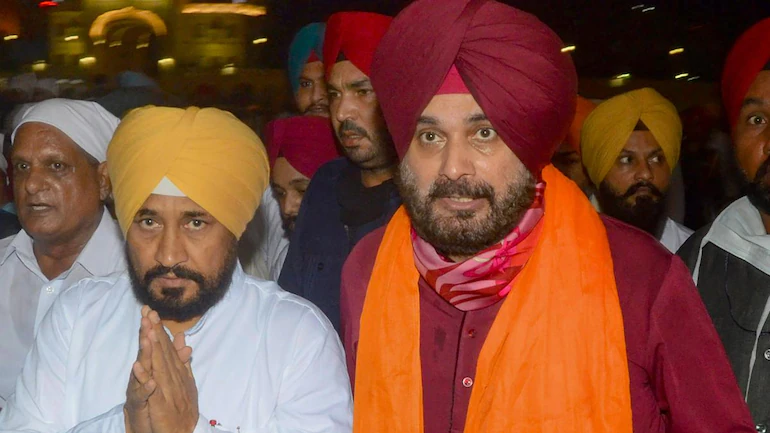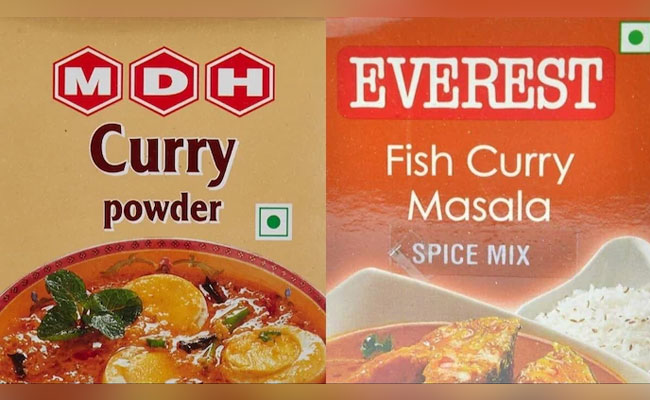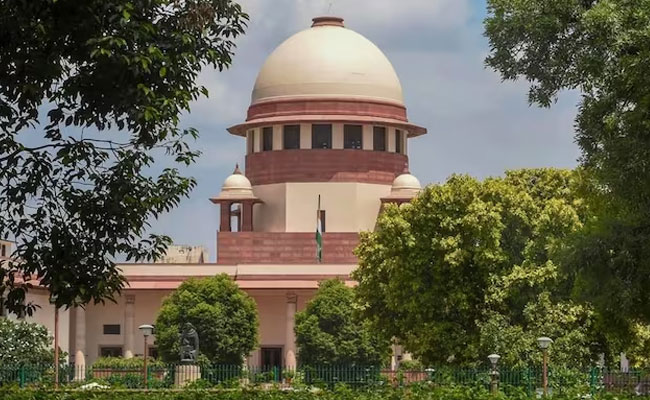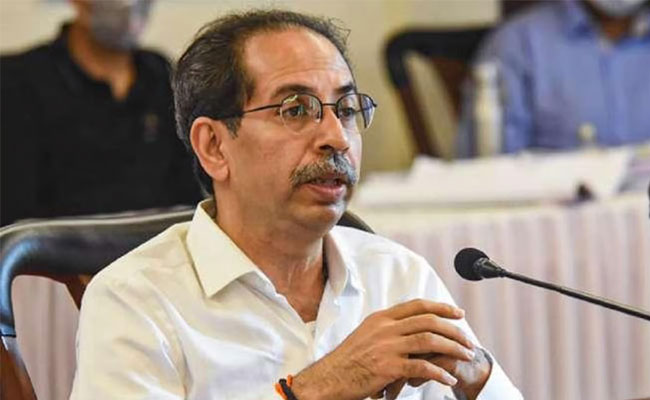Chandigarh, Sep 30: Navjot Singh Sidhu will continue as the Punjab Congress chief and a coordination panel is likely to be set up, which is expected to be consulted before any major decisions by the Punjab government in future, party sources said on Thursday.
The decision was reached after an over two-hour meeting at the Punjab Congress Bhavan between Chief Minister Charanjit Singh Channi and Sidhu, who had resigned from the post of the state party chief on Tuesday.
The panel may comprise the CM, Navjot Singh Sidhu and a representative of the AICC, the sources said.
The All-India Congress Committee (AICC) is expected to make an announcement in this regard, the sources said.
However, it is still unclear how differences over the appointment of the DGP and the AG will be dealt with.
Miffed Sidhu on Wednesday had raised a question over the appointments of the DGP, state's advocate general and "tainted" leaders.
Besides Channi and Sidhu, the meeting was attended by senior Congress leader and central observer Harish Chaudhary, minister Pargat Singh and Punjab Congress working president Kuljit Nagra, the sources said.
Minister Raj Kumar Verka, MLAs Inderbir Singh Bolaria, Avtar Singh Junior and PPCC working president Pawan Goel were in another room, they said.
There was no press briefing after the meeting between Sidhu and Channi.
Channi left the venue around 6 pm while Sidhu came out about half an hour later.
No party leader spoke to the media after the meeting concluded.
Earlier in the day, Sidhu reached Chandigarh from Patiala to meet Channi.
The meeting came a day after Channi reached out to him and offered to resolve issues through talks.
Just before his meeting with Channi, Sidhu attacked the state's new DGP, alleging that he wrongly indicted two Sikh youths in a desecration case and gave a clean chit to the Badals.
The desecration of a religious text allegedly took place in Punjab's Faridkot district in 2015, whose investigation was handed over by the then Parkash Singh Badal-led government to an SIT led by current DGP Iqbal Preet Singh Sahota.
Sahota was given the additional charge of the state's DGP by the Charanjit Singh Channi-led government.
The development in the Punjab Congress comes on a day when former chief minister Amarinder Singh was in Delhi and said he will quit the Congress, which he asserted was going downhill with senior leaders being ignored.
But Amariner scotched speculation of his joining the BJP.
Former state party chief Sunil Jakhar also said there should be an end to attempts to undermine the authority of the Punjab chief minister time and again.
Jakhar said "aspersions" being cast on the selection of the state's advocate general and state police head were actually "questioning the integrity of the CM".
Jakhar was obliquely referring to Sidhu who had raised questions over the appointments of the director general of police and the state's advocate general.
"Enough is enough. Put an end to attempts to undermine the authority of CM time and again. Aspersions being cast on the selection of AG & DGP is actually questioning the integrity/competence of CM and Home Minister to deliver results," he said.
"It's time to put the foot down and clear the air," tweeted Jakhar who was the front runner for the post of the chief minister.
But the party later chose Charanjit Singh Channi.
Let the Truth be known. If you read VB and like VB, please be a VB Supporter and Help us deliver the Truth to one and all.
Kathmandu: Nepal has recently taken steps to ban the consumption and sale of spices produced by Everest and MDH, following similar actions by Singapore and Hong Kong. The move comes amidst concerns over the presence of harmful chemicals in these products, particularly ethylene oxide, a known cancer-causing pesticide.
According to reports from ANI, Nepal's Department of Food Technology and Quality Control has initiated testing on spices from these two Indian brands for ethylene oxide. Mohan Krishna Maharjan, spokesperson for Nepal's food technology department, confirmed the ban, stating that it extends to both import and sale of the affected spices.
Maharjan highlighted that testing is currently ongoing, and the ban will remain in effect until conclusive results are obtained. This development reflects a growing international scrutiny on the safety of MDH and Everest spices, with concerns also raised in New Zealand, the United States, and Australia.
In New Zealand, where ethylene oxide usage for food sterilization has been phased out, authorities are investigating the presence of this chemical in MDH and Everest spices. Meanwhile, in April, the Hong Kong food safety body banned four spice products from these brands, followed by Singapore's recall of Everest's Fish Curry Masala due to excessive levels of ethylene oxide.
The Food Safety and Standards Authority of India (FSSAI) has responded by ordering quality checks on products from MDH and Everest. Additionally, it has reached out to food safety regulators in Hong Kong and Singapore for further information.
MDH and Everest spices have long been household names in India and are exported to various countries, including those in the Middle East.





